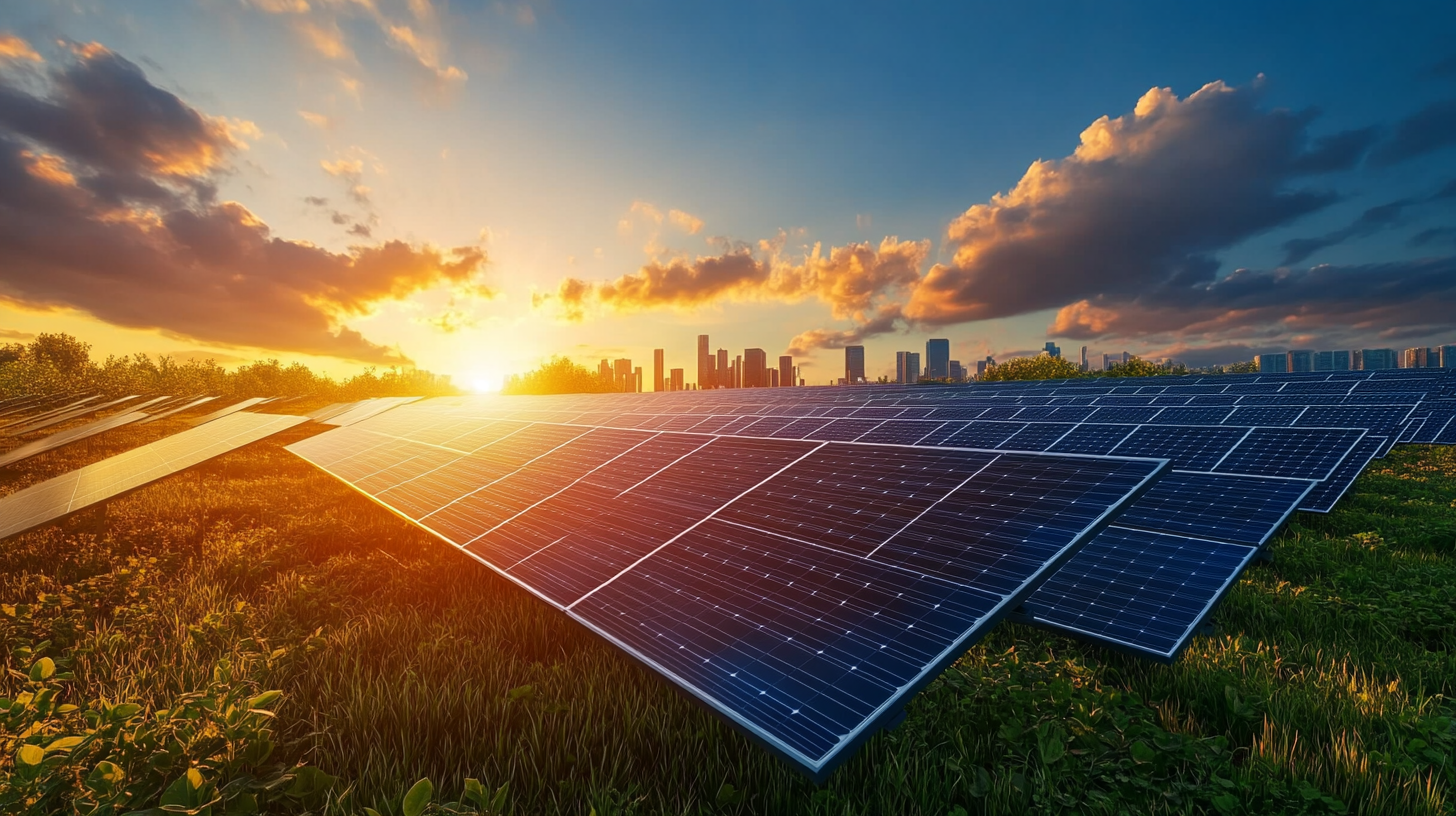Discover the Advantages of Best Solar With Light Solutions for Sustainable Energy
As the world grapples with the pressing need for sustainable energy solutions, the integration of "Solar With Light" technologies has emerged as a transformative approach to harnessing renewable power. According to a report by the International Energy Agency (IEA), solar energy accounted for nearly 48% of the global renewable power increase in 2020, showcasing its pivotal role in the energy transition. Furthermore, a recent study published by the National Renewable Energy Laboratory (NREL) highlights that integrating advanced lighting solutions into solar systems can enhance energy efficiency by up to 30%, significantly reducing dependence on fossil fuels. This ultimate guide will explore the myriad advantages of adopting the best solar with light solutions, shedding light on their potential to create a sustainable, eco-friendly future while also driving economic growth in the renewable sector.

Understanding the Importance of Quality Solar and Light Solutions for Sustainability
Quality solar and light solutions play a crucial role in promoting sustainability and reducing our carbon footprint. According to the International Energy Agency (IEA), solar energy could provide up to 25% of global electricity needs by 2050 if adequately harnessed. This potential makes it essential to invest in high-quality solar panels and lighting systems that ensure efficiency and longevity. Sustainable energy solutions not only help in cutting down on greenhouse gas emissions but also contribute to energy independence and resilience against fluctuating energy prices.
When considering solar products, it's vital to prioritize quality to maximize energy production and minimize maintenance costs. Here are some tips for selecting the best solar solutions: First, check for certifications such as Tier 1 manufacturing status, which indicates reliability and performance. Second, evaluate the warranty periods—the longer the warranty, the more confidence you can have in the product's durability. Lastly, consider integrated lighting systems powered by solar energy, as they can significantly reduce electricity bills while providing eco-friendly illumination.
In addition to direct financial savings, implementing quality solar and light solutions can lead to substantial environmental benefits. A report by the National Renewable Energy Laboratory (NREL) indicates that transitioning to solar energy could reduce carbon dioxide emissions by up to 4 billion tons annually in the U.S. alone. As individuals and businesses shift towards sustainable practices, the demand for quality solar and lighting products continues to rise, fostering a cleaner and healthier planet.
Discover the Advantages of Best Solar With Light Solutions for Sustainable Energy
| Feature | Advantage | Impact on Sustainability |
|---|---|---|
| High Efficiency Solar Panels | Maximize energy output | Reduces carbon footprint |
| Smart Lighting Solutions | Energy-saving features | Decreases energy consumption |
| Durability and Longevity | Long service life | Promotes resource efficiency |
| Low Maintenance Requirements | Reduced operational costs | Less waste generated |
| Renewable Energy Sources | Utilizes natural resources | Supports global energy transition |
Key Features to Look for in a Reliable Solar Supplier
When selecting a reliable solar supplier, several key features warrant consideration to ensure you receive not only high-quality products but also sustainable energy solutions. First, assess the supplier's track record in the renewable energy sector. With countries like China leading the world in renewable capacity growth, an established solar supplier should demonstrate consistent performance and innovation in their offerings. Recent data indicates that over the past two decades, countries committed to expanding their renewable energy infrastructure have seen significant returns on investment, making supplier reliability a paramount factor in your decision.
Additionally, evaluating the technology behind solar energy storage is crucial. As reported, advancements in battery storage systems allow consumers to store energy efficiently, maximizing their use of solar panels. By comparing various energy storage systems available today, prospective buyers can identify products that not only meet their energy needs but also offer long-term savings. Features such as warranty options and product durability can significantly impact the overall investment, and suppliers that prioritize transparency and detailed specifications will prove to be more trustworthy partners in the long run.
Advantages of Best Solar with Light Solutions for Sustainable Energy
This bar chart illustrates the key advantages of solar solutions in the areas of efficiency, cost savings, environmental impact, energy independence, and aesthetics, based on scoring out of 100. It highlights the benefits of choosing reliable solar suppliers for sustainable energy solutions.
Criteria for Evaluating Solar Products and Their Performance
When evaluating solar products for sustainable energy solutions, it's crucial to consider several key criteria that can significantly impact their performance. One of the primary factors is efficiency, which refers to how effectively a solar panel converts sunlight into usable electricity. According to the National Renewable Energy Laboratory (NREL), the average efficiency of commercial solar panels has increased from around 14% in 2010 to upwards of 22% in 2021, which underscores the rapid advancements in technology. Higher efficiency ratings not only translate to more energy production but also allow for smaller installations in space-constrained environments.

Another important criterion is durability and warranty. Quality solar products should come with a robust warranty, typically around 25 years for panels. This longevity is supported by extensive testing; for instance, the Solar Energy Industries Association (SEIA) highlights that top-tier solar manufacturers conduct rigorous stress tests to ensure their products can withstand harsh weather conditions, like heavy snow and extreme temperatures. Alongside warranty, evaluating the company's reputation and customer service is essential. A 2022 report from Wood Mackenzie observed that customers prioritize reputable brands with strong support networks, as these factors directly contribute to satisfaction and reliability over the lifespan of the solar setup.
Tips for Comparing Different Solar Light Solutions in the Market
When it comes to selecting the best solar light solutions, it’s essential to compare the multitude of options available in the market. Start by assessing the lumens output, which indicates brightness. A higher lumen count means brighter lights, ideal for illuminating larger spaces. Pay attention to the energy efficiency ratings; solutions with higher efficiency will capture more sunlight during the day, converting it into usable energy for the night.
Material quality is another critical factor. Durable materials, such as weather-resistant plastics or stainless steel, can significantly enhance the longevity of solar lights. Additionally, consider the battery capacity and charge time. A quality solar light solution should not only last through the night but also recharge efficiently during daylight hours. Lastly, look for customer reviews and expert recommendations to gauge performance in real-world conditions, ensuring you choose the best solution for your sustainable energy needs.

Building Long-term Partnerships with Your Chosen Solar Suppliers
Building long-term partnerships with chosen solar suppliers is crucial for advancing sustainable energy solutions. As the solar industry continues to evolve, collaborations that focus on innovation and resource management emerge as key drivers. For instance, the partnership between a recycling company and a solar manufacturer aims to supply millions of square meters of recycled glass from decommissioned solar panels, showcasing how circular economy principles can be applied to enhance efficiency and reduce waste in the supply chain.
In Europe, the challenge of establishing a competitive solar-PV supply chain is met with strategic partnerships that aim to decrease reliance on external suppliers and bolster resilience. A recent report indicated that 70% of European companies are exploring innovative collaboration avenues to secure a more stable energy future. Such synergies not only propel the adoption of solar technologies but also position companies to better respond to market demands and regulatory changes. The growing acknowledgment of these unconventional partnerships demonstrates the industry's commitment to sustainability and the collective pursuit of a greener planet.